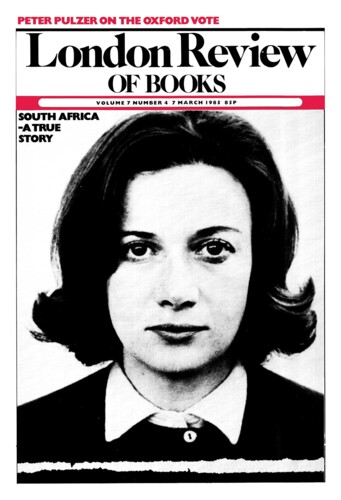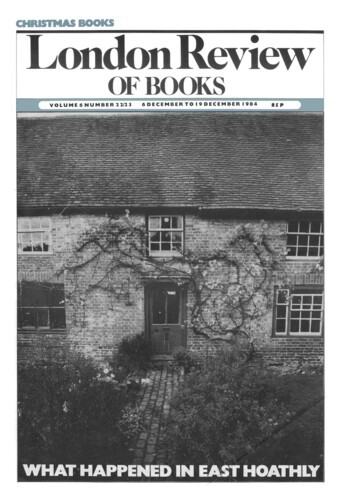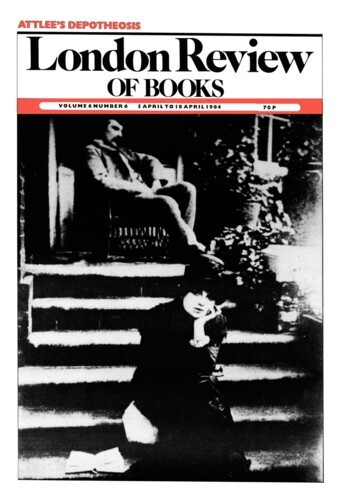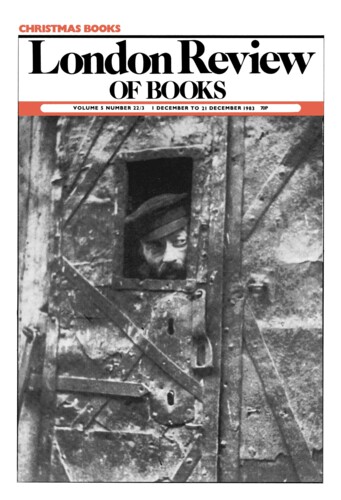Diary: Changes
Barbara Wootton, 7 March 1985
It would, I think, be generally agreed that in this country the generation now in its eighties or above must have seen more change in industrial processes and consequently in lifestyles than any of its predecessors at similar ages. This diary records the casual observations of one individual concerning public reactions to some of these changes which have impressed me personally, particularly in their effect upon the unwritten codes which govern the things that may be said, the questions that may be asked, and the language which may be used in the ordinary social intercourse of ‘respectable’ people.




